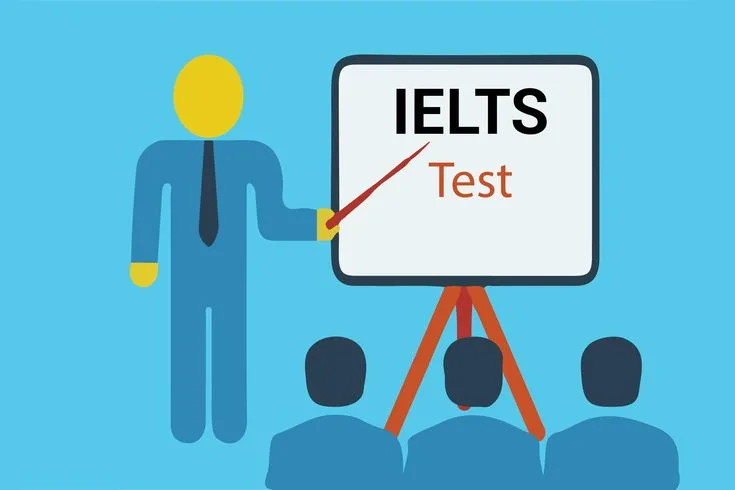IELTS Result & Score 2025: Check Your IELTS Test Results Online
 IELTS
Exam
Guide
IELTS
Exam
Guide
Introduction to IELTS Results & Scores
The International English Language Testing System (IELTS) is one of the most widely recognized English proficiency tests in the world. Whether you are planning to study abroad, immigrate to an English-speaking country, or secure employment, your IELTS score plays a crucial role in determining your eligibility.
Enquiry NowTable of Content
- How to Check IELTS Results Online
- Key Differences Between IELTS Academic and General Training Scores
- IELTS Result Format and What Each Section Means
- How to Request an IELTS Result Re-evaluation (Enquiry on Results - EOR)
- Common Mistakes to Avoid When Checking IELTS Results
- Tips to Improve Your IELTS Score
- Conclusion
IELTS results are reported as band scores, ranging from 0 to 9, reflecting different levels of English language proficiency. Understanding how your IELTS score is calculated and what it represents is essential to meet your academic or professional goals. In this guide, we will walk you through the entire process of checking IELTS results, interpreting band scores, and improving your IELTS performance — particularly in the challenging academic reading IELTS band score section.
How to Check IELTS Results Online
After taking your IELTS exam, checking your results is a straightforward process. Follow these steps to access your IELTS test results online:
Step 1: Visit the Official IELTS Website
- Go to the official IELTS portal, such as ielts.org or the authorized test center's website where you booked your exam.
Step 2: Enter Your Details
- Provide the following details accurately:
- Test date
- Candidate number (found on your IELTS Test Report Form)
- Date of birth
- Passport or ID number used for registration
Step 3: View Your IELTS Results
- IELTS exam results for paper-based tests are available 13 calendar days after the test date. For computer-delivered tests, results are available within 3-5 days.
Step 4: Download Your IELTS Test Result
- While online results are informative, they are not an official certification. An official Test Report Form (TRF) is sent to your provided address or directly to institutions you specify during registration.
Step 5: Understand the Validity
-
IELTS results are valid for two years from the test date, so make sure to plan your applications accordingly.
Key Differences Between IELTS Academic and General Training Scores
IELTS offers two types of tests: Academic and General Training. Both versions evaluate four core skills: Listening, Reading, Writing, and Speaking. However, there are notable differences in the scoring requirements:
- IELTS Academic: Suitable for students planning to study in universities or pursue higher education. The reading and writing sections feature complex language and academic texts.
- IELTS General Training: Required for immigration, work permits, or non-academic certifications. The content focuses on everyday language and practical scenarios.
For students targeting university admissions, achieving a higher academic reading IELTS band score is essential as many institutions require a minimum band of 6.5 to 7.
IELTS Result Format and What Each Section Means
Your IELTS result comes as a detailed Test Report Form (TRF). This document includes:
- Overall Band Score (average of four sections)
- Listening Score (band 0-9)
- Reading Score (band 0-9)
- Writing Score (band 0-9)
- Speaking Score (band 0-9)
Each section is scored independently, ensuring a precise assessment of your skills.
How to Request an IELTS Result Re-evaluation (Enquiry on Results - EOR)
If you believe your score does not reflect your performance, you can apply for an Enquiry on Results (EOR). This process allows you to request a re-evaluation of your test by an independent examiner.
Steps for EOR Request:
- Contact your IELTS test center within 6 weeks of your test date.
- Fill out the EOR request form and pay the applicable fee.
- Results from the re-evaluation process may take 2 to 21 days.
If your score improves, the re-evaluation fee will be refunded.
Common Mistakes to Avoid When Checking IELTS Results
- Incorrect Credentials: Ensure your Candidate Number and ID details are entered correctly.
- Late Checking: Avoid delays by marking the expected result date on your calendar.
- Misunderstanding Band Scores: Many students misinterpret score scales; ensure you understand what your score signifies.
Tips to Improve Your IELTS Score
Achieving a high score requires strategic preparation. Here are essential tips:
- Practice Regularly: Use IELTS sample papers to improve accuracy and speed.
- Focus on Weak Areas: Strengthen your reading comprehension and vocabulary for a higher academic reading IELTS band score.
- Develop Time Management Skills: Learn to allocate time efficiently across sections.
- Mock Tests: Taking timed mock exams can simulate real test conditions and improve performance.
Conclusion
Your IELTS result & score significantly impacts your educational and professional opportunities. By understanding the scoring system, learning how to check IELTS results online, and mastering exam preparation strategies, you can improve your overall performance — particularly in crucial sections like academic reading IELTS band score.
Stay informed, practice consistently, and aim for your target band score to achieve your study abroad or immigration goals.










